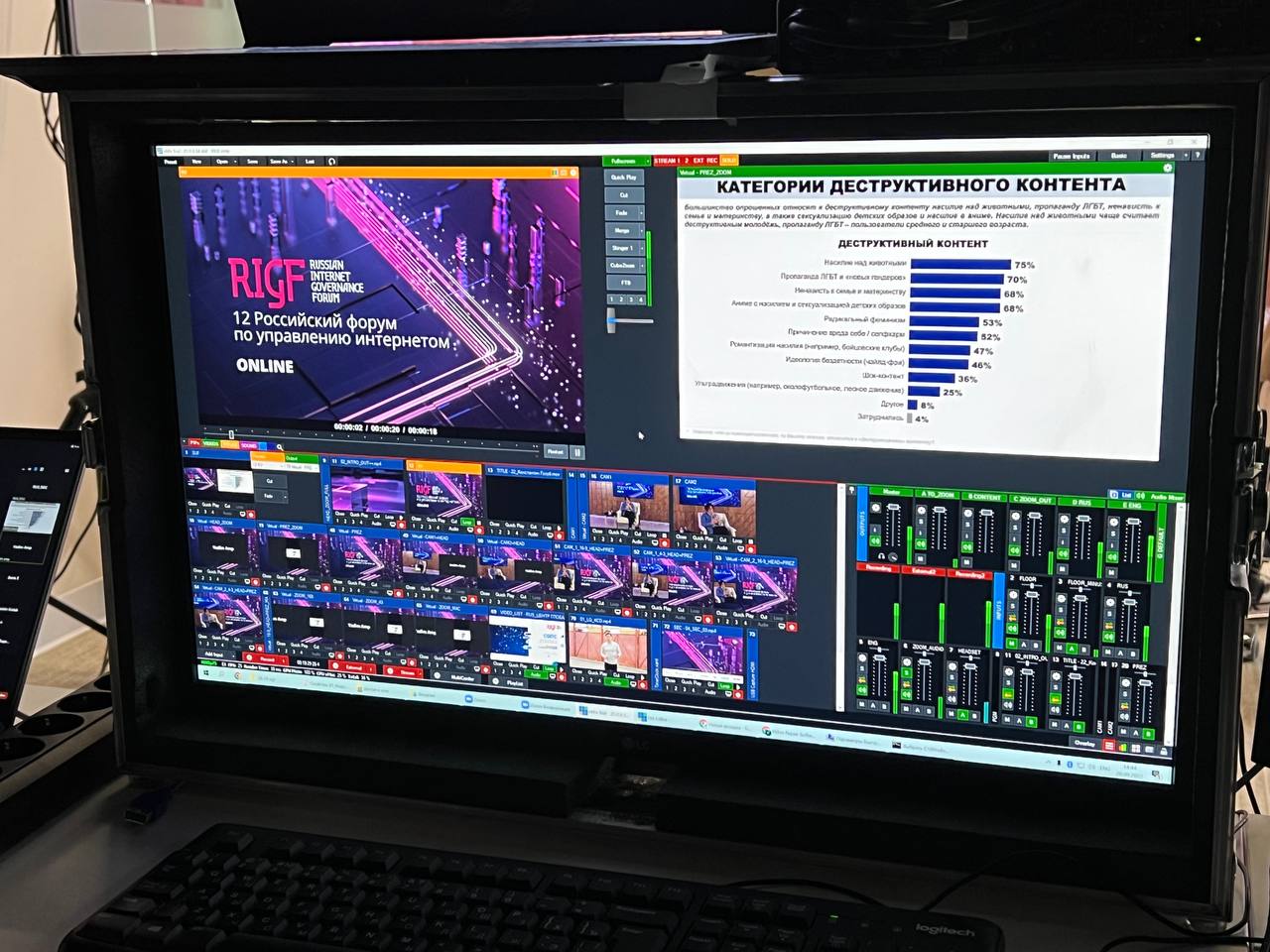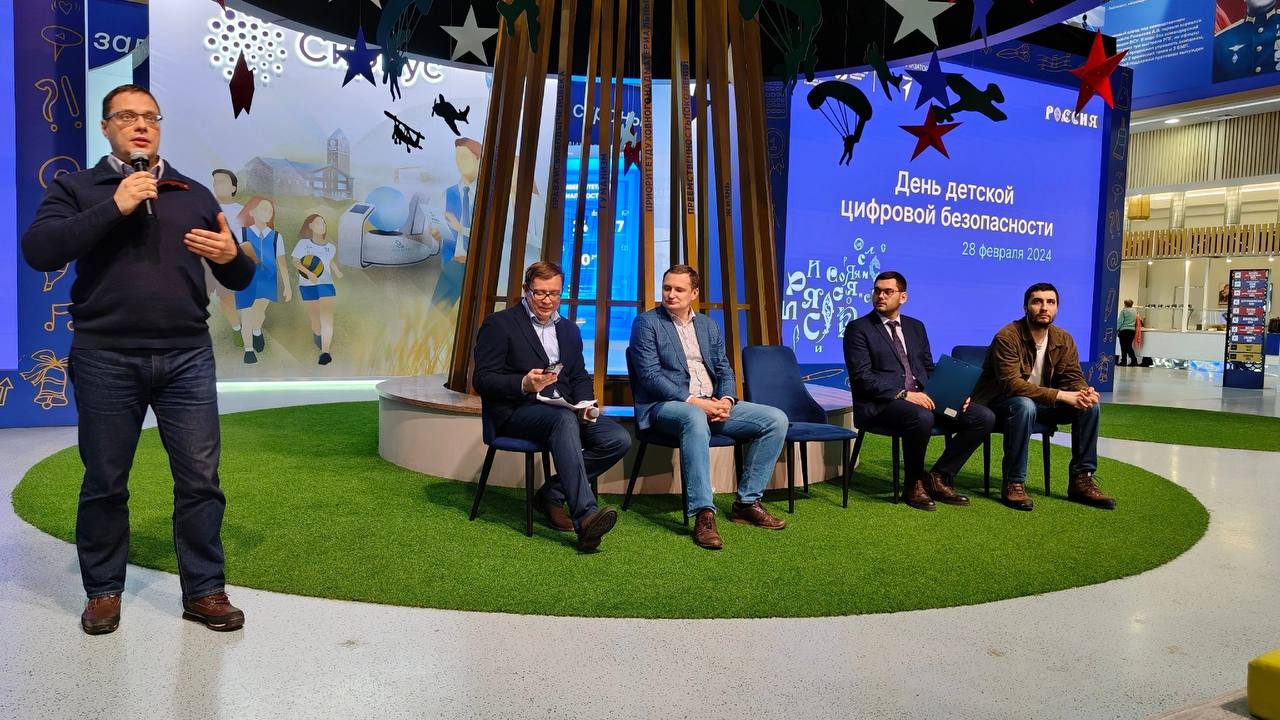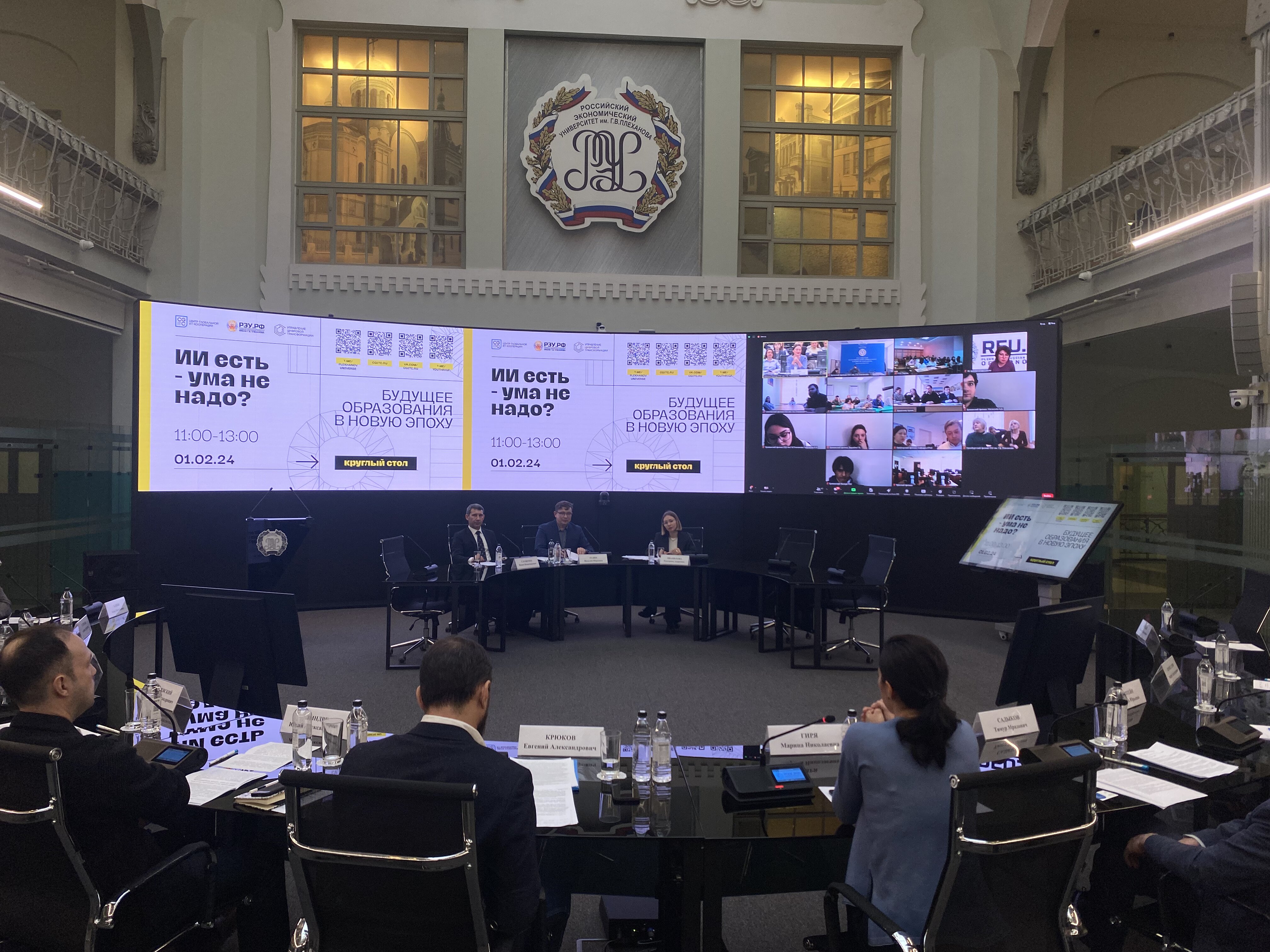On the second day of the forum, speakers brought up a very important topic, which is import substitution in the field of critical infrastructure protection and cybersecurity. According to Maxim Chernov, director of Information Infrastructure at ANO Digital Economy, today Russia has an opportunity to carry out import substitution of 60–80 % of all foreign software used in domestic critical information infrastructure (i.e., objects of CII). He also pointed out that some of the software products used in CII cannot be substituted now, since it will take some time to develop Russian counterparts of Western systems, which are used at approximately 90 % of continuous production facilities located in Russia. “We have to understand that we’ll spend some time living at risk and that critical infrastructure includes hardware and software complexes as well as software that we should assign trust values to,” the expert concluded.
Another session held on the second day of the RIGF 2022 was dedicated to the change the education technology market is undergoing. However, the preliminary results summed up by Makar Goncharov, managing partner of Pulsar Production, do not look encouraging. The Russian market of new education technology is going down after eight years of steady growth.
At the same time, B2G indicators remain stable. However, not everyone manages to succeed in this segment. General Director of the Cifrium educational platform Aleksey Polovinkin warned that the government is not a great distributor and companies have to promote their services themselves, which not everyone succeeds at. Also, state funding is slow to reach companies. According to the assessment of Mr. Polovinkin, programs targeted at children and teenagers are the main driver of the education technology market, their potential growth rate reaching 15 % year-over-year.
Speaking at the session on “Digital Born Generation: Risks of the Digital Environment Today and Tomorrow,” Head of Analytics at the Center for Global IT-Cooperation Andrey Ignatiev said that over the past two years, the number of dangers facing children online has grown significantly. According to the expert, that has to do with the massive digitalization of the society that occurred during the COVID-19 pandemic. “Statistics show that during the pandemic, a lot of people, including children, were going online. Therefore, the number of online incidents involving both younger and older children, that is, teenagers, has grown,” he stressed.
Experts participating in the discussion touched on the online age verification problem as well. Because today so many digital platforms simply disregard the obligation to comply with all essential requirements concerning the identification of underage users, this topic is especially relevant. Mr. Ignatiev cited the results of a study carried out by the Irish organization CyberSafeKids, according to which over 80 % of children between the ages of 8 and 12 have social media profiles and actively use messaging apps. “Although there is a rule that officially prohibits children under 13 from using such services,” the expert added.
Mr. Ignatiev stressed that certain phenomena, such as cyberbullying, sexting and other activities that can be harmful to children, are especially dangerous. Also, they can potentially transfer from the online space into the real world. The expert emphasized the great importance of warning children of such dangers, ensuring they can talk to parents and share their problems with professionals and adults.
During the session dedicated to the part youth play in Internet governance, Chairman of the Board of the Center for Global IT-Cooperation Roman Chukov spoke on the outcomes of the II Youth Internet Governance Forum, which was held in May. The forum brought together the most creative, talented, and progressive representatives of the youth engaged in the IT industry and deeply interested in the future of the Internet. The event was joined by approximately 400 offline visitors and more than 80,000 online participants, watching the live stream on VK—the forum’s partner platform.
The Center also presented a collection of original papers, prepared especially for the RIGF 2022 and titled Internet Today and Tomorrow. The articles cover topical challenges facing the information space and digital economy, the problems associated with the introduction and use of cross-cutting technology, and goals that need to be achieved to strengthen the Russian segment of the Internet as well as the IT industry as a whole. The collection was released to enhance the interinstitutional dialogue among specialists and give a boost to expert discussion on the topical issues of digitalization and Internet technology advancement, including those concerning the choice of a balanced position and priorities in order to ensure Russia’s effective participation in international projects in present circumstances. Acquaint yourself with the articles on the CGITC’s website.
The forum took place on September 28–29, 2022, in an online format and brought together over 500 experts, entrepreneurs, statesmen and public figures from 19 countries. It was organized by the Coordination Center for TLD .RU/.РФ and Center for Global IT-Cooperation with the support of the Ministry of Digital Development, Communications and Mass Media of the Russian Federation.





